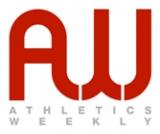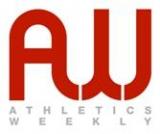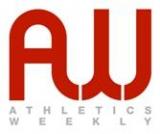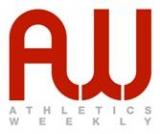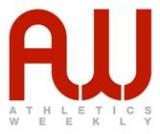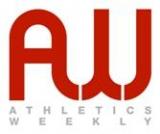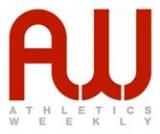Folders |
Seb Coe can lead IAAF forward, says author of damning WADA reportPublished by
WADA Independent Commission chair Richard Pound gives backing to the IAAF president as he presents findings contained within the second part of a report concerning allegations of widespread doping and corruptionSeb Coe is the best person to lead the International Association of Athletics Federations (IAAF), the author of the second part of a World Anti-Doping Agency (WADA) Independent Commission report said on Thursday (January 14). Richard Pound’s backing of IAAF president Coe came as the chair of the Independent Commission (IC) and WADA founding president presented findings and recommendations relating to allegations of widespread doping in international athletics as well as matters of a criminal nature that were contrary to the WADA Code. It follows the first part of the Independent Commission’s report, which was released last November and detailed findings including a “deeply rooted culture of cheating” in Russian athletics. The second part of the report, which spans 89 pages, looks deeper into the claims of corruption within the sport’s world governing body as well as a “leaked database” of blood test data. Laying the blame at the feet of former IAAF president Lamine Diack, who was succeeded by Coe in August, the report reads in part: “LD (Diack) was responsible for organizing and enabling the conspiracy and corruption that took place in the IAAF. “He sanctioned and appears to have had personal knowledge of the fraud and the extortion of athletes carried out by the actions of the informal illegitimate governance structure he put in place.” It adds: “The operational failure of checks and balances within the IAAF functioned to give LD the ability to direct changes in the established practices of the Medical and Anti-Doping Department (the MADept.”) and enabled contracts with consultants whose personal interests were not aligned with those of the IAAF.” However, the report goes on to state that the IAAF Council “could not have been unaware of the extent of doping in athletics and the non-enforcement of applicable anti-doping rules.” Before he became president, Coe, who was present at the WADA Independent Commission press conference in Munich, had been an IAAF vice president since 2007. “It is increasingly clear that far more IAAF staff knew about the problems than has currently been acknowledged,” claims the report. “It is not credible that elected officials were unaware of the situation affecting (for purposes of the IC mandate) athletics in Russia. If, therefore, the circle of knowledge was so extensive, why was nothing done? Quite obviously, there was no appetite on the part of the IAAF to challenge Russia.” Among the report’s recommendations is a need for the IAAF to re-evaluate its governance principles and structures to “put in place a governance structure that will prevent or identify any conflicts of interest or corruption in future.” Coe, Pound believes, is the right person to move the governing body forwards. “We were careful to point out that the Council could not have been unaware of the situation and we hold to that,” he said at the press conference. “As far as the ability of Lord Coe to remain at the head of the IAAF, I think it is a fabulous opportunity for the IAAF to seize this opportunity and, under strong leadership, to move forward out of this. “There is an enormous amount of reputational recovery that has to occur here and I can’t think of anyone better than Lord Coe to lead that. All our fingers are crossed in that respect.” Responding to the report, Coe said: “I am extremely grateful to the WADA Independent Commission for its work and for the recommendations it has made. The corruption that it has revealed is totally abhorrent, and a gross betrayal of trust by those involved. “Even though each of the impacted doping cases was eventually resolved with lengthy bans for the athletes involved, I recognise that the IAAF still has an enormous task ahead of it to restore public confidence. “We cannot change the past, but I am determined that we will learn from it and will not repeat its mistakes.” He added: “Some of the measures recommended by the Independent Commission already feature in the governance reform programme that I announced on 5 January but we will now urgently consider all of the new recommendations and will incorporate them quickly into that reform programme.” The report also provides further details on the management of Russian Athlete Biological Passport (ABP) cases and the extortion of Russian marathoner Liliya Shobukhova. Developments since the release of the first part of the Independent Commission report, including a leaked email from IAAF deputy general secretary Nick Davies to former IAAF marketing consultant Papa Massata Diack in 2013, have also been investigated. Extracts of that email, which was published by French newspaper Le Monde on December 21, included mention of an unofficial PR campaign” for damage limitation regarding the release of details about failed doping tests by Russian athletes ahead of the 2013 IAAF World Championships in Moscow. According to the Independent Commission’s report, the IAAF stated that “it believes that PMD (Papa Massata Diack) released the email to the press in an effort to distract attention away from his own status as a fugitive from French justice.” The report reads: “…the email and explanation make it clear that there was far greater general knowledge within the IAAF of problems with Russia than it has been willing to acknowledge. ” The final section of the report focuses on allegations made by German broadcaster ARD and in The Sunday Times following “leaked” blood test data. The statistics, which included 12,000 blood tests from 5000 athletes from 2001-2012, suggested a third of global championship medals in endurance events during that period were won by athletes with suspicious test readings. The Sunday Times and ARD had used two of the world s foremost anti-doping experts”, scientists Robin Parisotto and Michael Ashenden, to review the data. “The IC does not accept the conclusion in the reports of Drs. Ashenden and Parisotto provided to the ARD and Sunday Times, in which it is stated that sanctions could have been obtained on the basis of the values reported in the IAAF database provided to them for analysis,” read Pound’s report in part. “The IAAF was among the most active ADOs (anti-doping organisations) in the field of testing under the original EPO protocols and, subsequently, the ABP protocols. It has consistently followed accepted methodologies and has played an active role in the advancement of the applicable science. “The IC does not endorse suggestions that the IAAF has not been sufficiently active in relation to EPO testing from the outset of a reliable test for rEPO. While nothing is perfect, the IAAF has been extremely active in this aspect of the fight against doping in sport.” Recommendations include that the IAAF “establish rules to shift the onus for whereabouts requirements and effective out-of competition testing with respect to countries having been designated as high risk, such that those countries must be able, as a condition of eligibility, to demonstrate to the comfortable satisfaction of the IAAF compliance commission that no impediments exist.” The 89-page report can be read in full here. It was also reported on Thursday that an international wanted notice for Papa Massata Diack has been issued through Interpol. According to The Associated Press, the “red notice” says Papa Massata Diack is “wanted by the judicial authorities of France for prosecution to serve a sentence.” Lamine Diack was arrested by French police last November and is under investigation. Papa Massata Diack was one of three senior officials given life bans from athletics by the IAAF Ethics Commission earlier this month. See AW’s January 21 edition for further coverage of part two of the WADA Independent Commission report The post Seb Coe can lead IAAF forward, says author of damning WADA report appeared first on Athletics Weekly. Read the full article at: www.athleticsweekly.com
More news |
